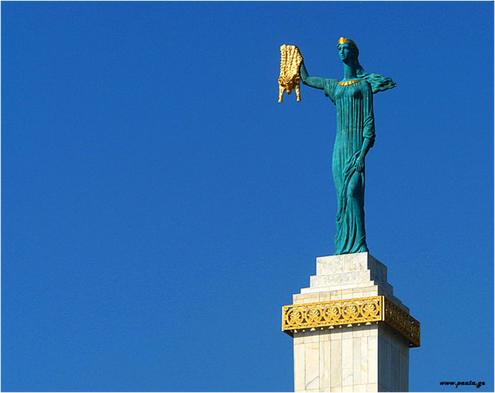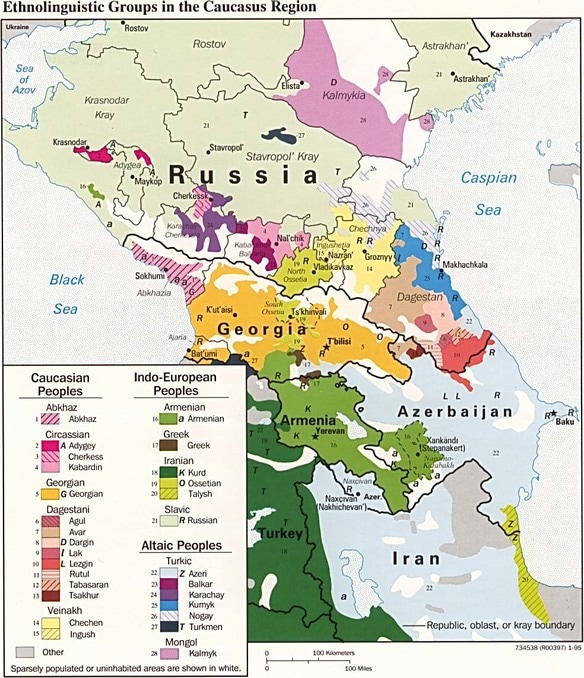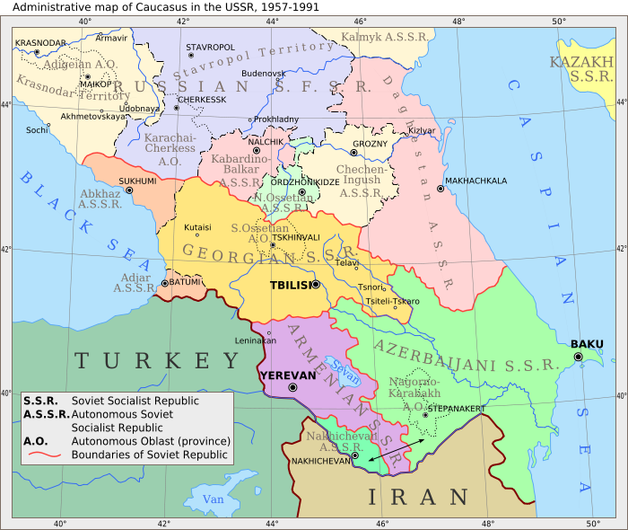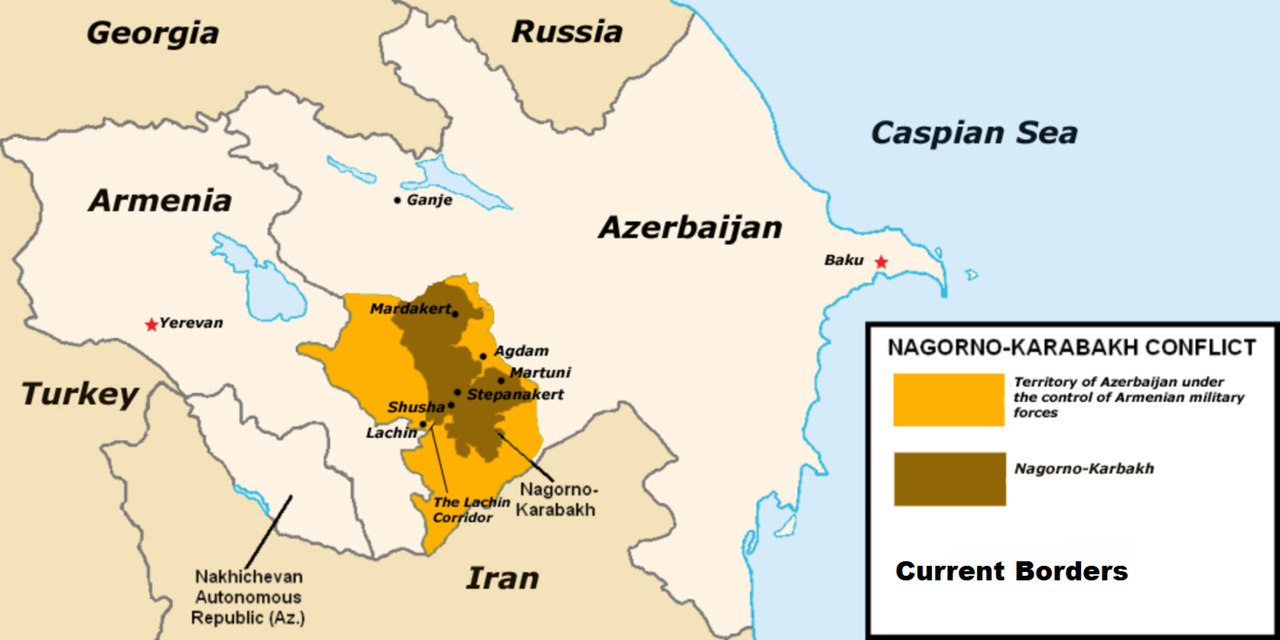| linguae |
|
- HOME
-
LATIN & GREEK
-
CIRCULUS LATINUS HONCONGENSIS
>
- ORATIO HARVARDIANA 2007
- NOMEN A SOLEMNIBUS
- CARMINA MEDIAEVALIA
- BACCHIDES
- LATIN & ANCIENT GREEK SPEECH ENGINES
- MARCUS AURELIUS
- ANGELA LEGIONEM INSPICIT
- REGINA ET LEGATUS
- HYACINTHUS
- LATINITAS PONTIFICALIS
- SINA LATINA >
- MONUMENTA CALEDONICA
- HISTORIA HONCONGENSIS
- ARCADIUS AVELLANUS
- LONDINIUM
- ROMAN CALENDAR
- SOMNIUM
- CIRCULUS VOCABULARY
- HESIOD
- CONVENTUS FEBRUARIUS (I)
- CONVENTUS FEBRUARIUS (II)
- CONVENTUS MARTIUS
- CONVENTUS APR 2018
- CONVENTUS APRILIS
- CONVENTUS MAIUS
- CONVENTUS IUNIUS
- CONVENTUS IULIUS
- CONVENTUS SEPT 2017
- CONVENTUS OCT 2017
- CONVENTUS NOV 2017
- CONVENTUS DEC 2017
- CONVENTUS DEC 2017 (II)
- CONVENTUS JAN 2018
- CONVENTUS FEB 2018
- CONVENTUS MAR 2018
- CONVENTUS MAIUS 2018
- CONVENTUS IUN 2018
- CONVENTUS IUL 2018
- CONVENTUS SEPT 2018
- CONVENTUS OCT 2018
- CONVENTUS NOV 2018
- CONVENTUS DEC 2018
- CONVENTUS NATIVITATIS 2018
- CONVENTUS IAN 2019
- CONVENTUS FEB 2019
- CONVENTUS MAR 2019
- CONVENTUS APR 2019
- CONVENTUS MAIUS 2019
- CONVENTUS IUN 2019
- CONVENTUS IULIUS 2019
- CONVENTUS SEP 2019
- CONVENTUS OCT 2019
- CONVENTUS NOV 2019
- CONVENTUS DEC 2019
- CONVENTUS JAN 2020
- CONVENTUS FEB 2020
- CONVENTUS MAR 2020
- CONVENTUS APR 2020
- CONVENTUS IUL 2020
- CONVENTUS SEP 2020 (I)
- CONVENTUS SEPT 2020 (II)
- CONVENTUS OCT 2020
- CONVENTUS NOV 2020
- CONVENTUS IAN 2021
- CONVENTUS IUN 2021
- CONVENTUS IULIUS 2021
- CONVENTUS AUG 2021
- CONVENTUS SEPT 2021
- CONVENTUS OCT 2021
- CONVENTUS NOV 2021
- CONVENTUS FEB 2022 (1)
- CONVENTUS FEB 2022 (2)
- CONVENTUS MAR 2022
- CONVENTUS APRILIS 2022
- CONVENTUS MAIUS 2022
- CONVENTUS IUN 2022
- CONVENTUS IUL 2022
- CONVENTUS SEP 2022
- CONVENTUS OCT 2022
- CONVENTUS NOV 2022
- CONVENTUS DEC 2022
- CONVENTUS IAN 2023
- CONVENTUS FEB 2023
- CONVENTUS MARTIUS 2023
- CONVENTUS APRIL 2023
- CONVENTUS MAIUS 2023
- CONVENTUS IUN 2023
- CONVENTUS IUL 2023
- CONVENTUS SEP 2023
- CONVENTUS OCT 2023
- CONVENTUS IAN 2024
- CONVENTUS MARTIUS (I) 2024
- RES GRAECAE >
-
IN CONCLAVI SCHOLARI
>
- LATIN I
- LATIN I (CAMBRIDGE)
- LATIN II (CAMBRIDGE)
- LATIN II (MON)
- LATIN II (SAT)
- LATIN III (MON)
- LATIN III (SAT)
- LATIN IV
- LATIN TEENAGERS I
- LATIN TEENAGERS II
- LATIN TEENAGERS III
- LATIN TEENAGERS IV
- LATIN TEENAGERS V
- LATIN TEENAGERS VI
- LATIN TEENAGERS VII
- LATIN TEENAGERS VIII
- LATIN TEENAGERS IX
- LATIN TEENAGERS X
- LATIN TEENAGERS XI
- LATIN SPACE I
- LATIN SPACE II
- LATIN SPACE III
- LATIN SPACE IV
- CARPE DIEM
- INITIUM ET FINIS BELLI
- EPISTULA DE EXPEDITIONE MONTANA
- DE LATINE DICENDI NORMIS >
- ANECDOTA VARIA
- RES HILARES
- CARMINA SACRA
- CORVUS CORAX
- SEGEDUNUM
- VIDES UT ALTA STET NIVE
- USING NUNTII LATINI
- FLASHCARDS
- CARMINA NATIVITATIS
- CONVENTUS LATINITATIS VIVAE >
- CAESAR
- SUETONIUS
- BIBLIA SACRA
- EUTROPIUS
- CICERO
- TACITUS
- AFTER THE BASICS
- AD ALPES
- LIVY
- PLINY
- OVID
- AENEID IV
- AENEID I
- QUAE LATINITAS SIT MODERNA
-
CIRCULUS LATINUS HONCONGENSIS
>
-
NEPALI
- CORRECTIONS TO 'A HISTORY OF NEPAL'
- GLOBAL NEPALIS
- NEPALESE DEMOCRACY
- CHANGE FUSION
- BRIAN HODGSON
- KUSUNDA
- JANG BAHADUR IN EUROPE
- ANCESTORS OF JANG
- SINGHA SHAMSHER
- RAMESH SHRESTHA
- RAMESH SHRESTHA (NEPALI)
- NEPALIS IN HONG KONG
- VSO REMINISCENCES
- BIRGUNJ IMPRESSIONS
- MADHUSUDAN THAKUR
- REVOLUTION IN NEPAL
- NEPAL 1964-2014
- BEING NEPALI
- EARTHQUAKE INTERVIEW
- ARCHIVES IN NEPAL
- FROM THE BEGINNING
- LIMITS OF NATIONALISM
- REST IS HISTORY FOR JOHN WHELPTON
- LIMPIYADHURA AND LIPU LEKH
- BHIMSEN THAPA AWARD LECTURE
- HISTORICAL FICTION
- READING GUIDE TO NEPALESE HISTORY
- LANGUAGES OF THE HIMALAYAS
- REVIEW OF LAWOTI (2007)
- ROMANCE LANGUAGES
-
English
- VIETNAM REFLECTIONS
- GRAMMAR POWERPOINTS
- PHONETICS POWERPOINTS
- MAY IT BE
- VILLAGE IN A MILLION
- ENGLISH RHETORIC
- BALTIC MATTERS
- SHORT STORIES QUESTIONS
- WORD PLAY
- SCOTS
- INTERNATIONAL SCHOOLS
- STORY OF NOTTINGHAM
- MEET ME BY THE LIONS
- MNEMONICS
- ALTITUDE
- KREMLIN'S SUICIDAL IMPERIALISM
- CLASSROOM BATTLEFIELD
- MATHEMATICS AND HISTORICAL LINGUISTICS
- OLD TESTAMENT INJUNCTIONS
- KUIRE ORIGINS
- BALTI
- CUBA
- JINNAH AND MODERN PAKISTAN
- ENGLISH IS NOT NORMAL
- HKAS
QUESTIONS ARISING FROM 74th. MEETING – 3/2/17
(the record of earlier meetings can be downloaded from the main Circulus page)
We dined on agnīna assa (roast lamb) and acetāria (salad) preceded by caseus (cheese) and olīvae et pānis (olives and bread), finishing with placenta socolāta (chocolate cake) and meringa in crūstō cocta (meringue pie) and all washed down with vīnum coctum (mulled wine), whilst sitting in Keon and Tanya’s courtyard (ārea), which can be seen in the photograph of our 2014 gathering on the Circulus web-page (http://linguae.weebly.com/circulus-latinus-honcongensis.html).
Also on the food and drink front, we briefly disussed the etymology of `chip-butty’, which in northern English dialect for a bread and butter sandwich containing chips (known to Americans as `French fries’) and could be inelegantly expressed in Latin as pastillum fagmentīs solānōrum fartum. `Butty’ is simply a shortening of `butter’ with the `y’ suffix added. Mentioned too were the Ethiopian origins of coffee (caffea, -ae f), which seems first to have been consumed in the very strong form now known as `Turkish coffee. Finally, we touched on the word crustulum, defined in Lewis & Short’s dictionary as `a small pastry’ and now the standard neo-Latin for `biscuit’ The word is used in the rather free version of the song `Cottleston Pie’ in Winnie Ille Pu, the famous translation of Milne’s children’s classic:
Also on the food and drink front, we briefly disussed the etymology of `chip-butty’, which in northern English dialect for a bread and butter sandwich containing chips (known to Americans as `French fries’) and could be inelegantly expressed in Latin as pastillum fagmentīs solānōrum fartum. `Butty’ is simply a shortening of `butter’ with the `y’ suffix added. Mentioned too were the Ethiopian origins of coffee (caffea, -ae f), which seems first to have been consumed in the very strong form now known as `Turkish coffee. Finally, we touched on the word crustulum, defined in Lewis & Short’s dictionary as `a small pastry’ and now the standard neo-Latin for `biscuit’ The word is used in the rather free version of the song `Cottleston Pie’ in Winnie Ille Pu, the famous translation of Milne’s children’s classic:
|
Crustulum, crustulum, crustulum cru
Cano aenigmata, canis ac tu? Crustulum, crustulum, crustulum crum Cerebrum meum est fatiga-tum. Crustulum, crustulum, crustulum cru Volitant aves, dic volitas tu? Crustulum, crustulum, crustulum crum Cerebrum meum est fatiga-tum. Crustulum, crustulum, crustulum cru Sibilo bene, dic sibilas tu? Crustulum, crustulum, crustulum crum Cerebrum meum est fatiga-tum. |
Cottleston, Cottleston, Cottleston Pie.
A fly can't bird, but a bird can fly. Ask me a riddle and I reply: "Cottleston, Cottleston, Cottleston Pie." Cottleston, Cottleston, Cottleston Pie. A fish can't whistle and neither can I. Ask me a riddle and I reply: "Cottleston, Cottleston, Cottleston Pie." Cottleston, Cottleston, Cottleston Pie. Why does a chicken, I don't know why. Ask me a riddle and I reply: "Cottleston, Cottleston, Cottleston Pie." |
The Kam Tin meeting was intended to mark the start of the Year of the Rooster. Pat explained that Chinese New Year’s Day, falling this year on 28 January by the Western calendar, was the closest new moon to the first day of spring, that day itself being fixed at the mid-point between the winter and vernal equinoxes.
Pat was recently back from a trip to the Caucasus, where he had visited Georgia and Armenia, countries which, for their size, have a higher concentration than anywhere else of World Heritage sites but which have suffered in the political turmoil which accompanied the weakening and fall of the Soviet Union. Present-day Georgia includes the territory which once comprised the kingdom of Colchis, whose legendary King Aeetes supposedly possessed the Golden Fleece that Jason and the Argonauts came in search of. In 2007 a statue of Medea, Aeetes’ daughter, who assisted Jason in stealing the Fleece, was erected in the Georgian port of Batumi.
Georgia is inhabited principally by speakers of Georgian, an exceedingly complex Caucasian language, but its South Ossetian region shares the Iranian-related Ossetian language with the people of North Ossetia on the Russian side of the border (see the map of ethnic groups in the Caucasus below). South Ossetia was granted a degree of autonomy under the Soviet Union, probably as a reward for helping the Bolshevik regime top bring Georgia under its control. Their demands for greated devolved powers led to violent clashes with the central Georgian government and eventually to a brief war between Russi and Georgia in 2008. South Ossetia is now effectively an independent state under Russian protection and the Georgians have been seeking to develop new maritimg trade routes to replace their tradional links wih Russia. Europe Square in Batumi, where the Medea statue now stands, was probably so-named to reflect this new orientation.
From http://www.lib.utexas.edu/maps/commonwealth/ethnocaucasus.jpg
(N.B. Not all linguists accept the existence of an Altaic family including both Turkic and Mongolian)
(N.B. Not all linguists accept the existence of an Altaic family including both Turkic and Mongolian)
The Armenians who are Christian and speak an Indo-European language closely related to Persian have been in conflict since the 1980s with neighbouring Azerbaijan, whose inhabitants are mostly Azeris, a Muslim and Turkic speaking community with the greater part of its members actually living in Iran. The dispute is over the Nagorno-Karabakh enclavw which is a mainly Armenian-speaking region surrounded by traditionally Azeri speaking-territory and assigned under Stalin to Azerbaijan:
Administrative boundaries under the Soviet Union -
https://en.wikipedia.org/wiki/Nagorno-Karabakh_War#/media/File:Soviet_Caucasus_map.svg
https://en.wikipedia.org/wiki/Nagorno-Karabakh_War#/media/File:Soviet_Caucasus_map.svg
Fighting between Armenia and Azerbaijan was ended by a ceasefire in 1996 but minor clashes continued and there was a major flare-up last year – see the Economist report at:
http://www.economist.com/news/europe/21696563-after-facing-decades-armenia-and-azerbaijan-start-shooting-frozen-conflict-explodes Although Azerjaiban’s oil reserves may make it potentially the stronger power, the Armenians have generally held the upper hand and are in miltary control both of the disputed region itself and of surrounding parts of Azerbaijan-proper (see the map above). Nagorno-Karabakh is technically still an autonomous region of Azerbaijan but uses the Armenian currency and one of its former presidents later became president of Armenia. Ethnic cleansing has removed a large part of the Muslim population from the region between Nagorno-Karabakh and the Armenian border. The frontier between Armenian and Azerbaijani-controlled territory remains closed.
Despite all the political complexities, Pat enjoyed the trip but commented on the exteme machoism of Armenian culture and the prevalent homophobia.
Back in Hong Kong, Pat had been compiling a report on the government’s `small house’ policy, under which since the 1970s male indigenous villagers in the New Territories have been allocated land to build a house which they may then either occuy themselves or lease out to others. This had recently come under legal challenge but there were in fact precedents for the policy dating back to 1906.
We read another six sections of Ciceronis Fīlius (see below). These focused on the Roman educational system, including instruction in arithmetic, for which use was made of small stones (calculī, -ōrum m. from which `calculate’ is derived.) placed in a sand tray and moved in a similar way to the wooden pieces on a Chinese abacus.
The extracts included mention of the shorthand system (Notae Tirōniānae) attributed to Cicero’s freedman, Tiro, which was not widely learned until some time after his death but then continued in use into the Middle Ages. It is generally supposed that the purpose was simply to allow the taking of rapid notes but someone suggested that is was originally intended as a cipher to preserve confidentiality. The truth seems to be that the word notae itself was used both for shorthand and for a cipher and that the system(s) of the former used in Rome was the work of a number of persons over a long period. For the conflicting statements of ancient authors on the topic see the account in Smith’s Dictionary of Greek and Roman Antiquities, available on-line at http://penelope.uchicago.edu/Thayer/E/Roman/Texts/secondary/SMIGRA*/Nota.html We noted also that, as a common noun rather than a personal name, tirō meant a new army recruiter and, by extension, a beginner in any field.
Paul mentioned the widespread use of stenogrpahers in the recording of modern-day court proceedings. He recalled that when he began work as a lawyer there was acshortage and that at one point expatriate judges were allowed one but the sole Chinese judge had to take his own notes in long-hand.
Finally we mentioned the verb trādō (<trāns + dō, `hand over’) and the use of the derived agent noun trāditor to mean `traitor’. Pat said this originated from the persecution by the Roman authorities of Christians in North Africa. They were ordered to hand over their scriptures and those who complied were regarded by the others as traitors.
CICERONIS FILIUS, pp.33-37
Puerī maiōrēs nātū imitantur
Mōs est ille puerōrum ut maiōrēs nātū suōs imitārī velint; neque aliter Rōmae fīēbat. Interdum enim parvī illīus Cierōnis sociī sē `iūdicēs’ vel `magistrātūs’ esse simulābant. Cōnsul aliquis creātus, cōnsulis partēs sustinēbat, lictōribus stīpātus per peristӯliī ambulātiōnēs[1] vel sub porticibus gravī superciliō incēdēbat. Ficta[2] etiam bella gerēbant, ācriter proeliantēs. Alterī saepe latrōnēs erant, alterī mīlitēs, magnōque clamōre alius alium verberābant,[3] dum suum quisque adversārium superāre cōnātur; nec rārō fīēbat, ut simulātae illae pugnae in vērās puerīlēs rixās ēvāderent.[4]
Dexteritātis praemia[5]
At nucibus plērumque puerī lūdēbant. Vicissim nītēbantur[6] omnēs ut, magnā nuce iactā, parvum aliquod castellum ferīrent, sīc quattuor nucibus extructum,[7] ut trēs nucēs humī īnfīxae superpositam nucem sustinērent. Sī castellum illud, nuce īctum, corruisset,[8] disiectae nucēs praemium victōris erant. Multa etiam alia dexteritātis certāmina fīēbant;[9] quī prīmus in illīs fuisset, rēx creābatur, Ludentēs igitur cantitāre solēbant:[10] `Rēx eris, sī rectē faciēs’; quae vōx apud Rōmānōs in prōverbiī cōnsuētūdinem[11] vēnit.
NOTES:
[1] creō, -āre, -āvī, -ātum, make, create; cōnsulīs partēs, the role of consul; stīpō, stīpāre, stīpāuī, stīpātum verb crowd, press together, compress, surround closely; ambulātiō, -iōnis f, walkway (often under cover)
[2] gravī superciliō, literally `with serious eyebrow;, i.e with a serious expression; fictus, -a, -um, made-up, fictious.
[3] latrō, latrōnis m, robber; verberō, -āre, -āvī, -ātum, beat, lash.
[4] rixa, -ae f, quarrel; ēvādō, -ere, -vāsī,-vāsum, turn out, avoid
[5] dexteritās, -ātis f skill; praemium, -ī n, reward
[6] nux, nucis f, nut; nītor, nītī, nīsus/nīxus sum, endeavour, lean (on)
[7] feriō, ferīre, strike, knock; exstruō, -ere, -strūxī, -strūctum, pile up
[8] humī infixae, fixed in the ground; īciō, īcere, īcī, ictum, hit, strike; corruo, -ere, corruī, collapse
[9] disiciō, -ere, -iēcī, -iectum, scatter; certāmen, certāminis n, contest
[10] creō, -āre, -āvī, -ātum, create, make, elect; soleō, solēre, solitus sum, be accustomed
[11] proverbiī cōnsuetūdinem, use as a proverb
Dē prīmīs Cicerōnis studiīs
Septimum annum Cicerō agēbat, cum pater eius statuit[1] ut ille prīma litterārum elementa disceret. Trāditus est igitur litterātōrī, quī puerum blandīs verbīs oblātīsque crustulīs[2] excēpit, dubium illum quidem et haesitantem, sed nōn admodum rudem[3], cum iam ante ab ipsō patre institūtus. O litteram ab I litterā discernere[4] posset, quod altera rotunda, altera rēcta. Postquam litterātor illum ērudiendum suscēpit, elementa omnia dignōscere[5] atque in cērā exarāre didicit. Mox litterātōrī est additus calculātor, quō magistrō ratiōnēs subdūcere[6] coepit. Ostendēbat ille quā ratiōne ās ūnus in partēs multās didūcī posset, quōmodo calculī[7] pōnerentur, cētera huius generis. Parum esse aiēbat, sī quis id tantum nōsset bis bīna[8] quattuor fierī.
Dē nōtāriīs[9]
Eō tempore nōndum[10] puerī notāriō trādēbantur, ut artem illam discerent, quam nōs Graecō verbō `stenographiam’ dīcimus. Hanc artem quī nōvit, idōneus fit, notīs quibusdam[11] adhibitīs, ad verba celeriter chartīs mandanda. Sērius[12] tamen, cum populus Rōmānus iamdūdum sub prīncipibus vīveret, ars notāria vulgāta est[13]; tam adsiduē illam discipulī sub notāriō discēbant, ut litterās sub litterātōre, ratiōnēs sub calculātōre. Notās igitur parvus ille Cicerō nōn didicit, quamquam in ipsīs patris aedibus servus Tīrō[14] vīvēbat, quī prīmus putātur notās invēnisse.
NOTES:
[1] statuō, statuere, statuī, statūtum, decide
[2] trādō, trādere, trādidī, trāditum, hand over; litterātor, -ōris m, teacher of reading and writing; blandus, -a, -um, gentle, pleasant; offerō, offerre, obtulī, oblātum; crustulum, -ī n, bscuit.
[3] excipiō, -cipere, -cēpī, -ceptum, receive, welcome; admodum, excessively; rudis, -e, unskilled
[4] īnstituō, -ere, īnstitūtī, īnstitūtum, educate; discernō, -cernere, -crēvī, -crētum, distinguish
[5] rēctus, -a, -um, straight; ērudiō, -īre, -rudīvī, -rudītum, educate; suscipiō, -cipere, -cēpī, -ceptum, undertake, receive; dignōscō, -ere, distinguish.
[6] cēra, -ae f, wax; exarō, -āre, -āvī, -ātum, plough up, note down (by scratching wax on a tablet); discō, -ere, didicī, learn; calculātor, -ōris, m, teacher of arithmetic; quō magistrō, `with whom as teacher’; ratiōnēs subdūcō, -ere, dūxī, ductum, make calculations, drw up accounts.
[7] ostendō, -ere, ostendī, ostēnsum, show; ratiō, ratiōnis f, method, calculation; ās, assis m, a small copper coin; dīdūcō, -ere, -dūcī, -ductum, divide, separate; calculus, -ī m, pebble usd in calculation
[8] parum, too little; āiō, say; tantum, only; nōsse, contraction of nōvisse, to have learnt, to know (perfect infinitive from nōscō, nōscere, nōvī, nōtum); bis bīna, two times two (literally `twice two each’)
[9] notārius, -ī m, shorthand writer, clerk
[10] nōndum, not yet
[11] idōneus, -a, -um, capable; nota, -ae f, mark, sign; quīdam, quaedam, quoddam, (a) certain.
[12] adhibeō, -hibēre, -hibuī, -hibitum, use; mandō, -āre, -āvī, -ātum, entrust; sērius, later
[13] iamdūdum, long since, long ago; vulgō, -āre,āvī, ātum, publish, make common to all, spread.
[14] Tīrō: Marcus Tullius Tiro, as be was known after being freed by his master in 53 B.C., acted as Cicero’s secretary and assistant and published his correspondence after his death. Modern scholars are uncertain whether he was actually the inventor of the form of shorthand used into the medieval period and known as `Tironian notes’ (notae Tīrōniānae); see http://penelope.uchicago.edu/Thayer/E/Roman/Texts/secondary/SMIGRA*/Nota.html (from Smith's Dictionary of Greek and Roman Antiquities). Tiro is the narrator in Robert Harris’s historical novels about Cicero’s life and appears in other works of fiction. See https://en.wikipedia.org/wiki/Marcus_Tullius_Tiro
Parvus Cicerō in lūdum itāre[1] incipit.
Prīmōs magistrōs Cicerō domī habuit; deinde in litterārum lūdum itāre coepit. Cum vel in lūdum prīmō māne īret vel sub vesperum redīret, custōs illum comitābātur.[2] Servus erat hic nātiōne Graecus, homō sevērus et dīligēns nec plānē indoctus,[3] quem M. Cicerō fīliō praefēcerat ut illum, absente patre, sī opus[4] esset, corrigeret, simulque Graecam linguam colloquendō docēret. Nēmō enim apud Rōmānōs erat quīn, sī in studiīs provectior[5] esset, Graecō sermōne tam bene ūterētur quam suō. Capsārium conservī [6]custōdem illum vocābant, servīle officium exprobantēs, quod, cum Cicerō lūdum peteret, capsam[7] ille gestāret scrīptōriōs calamōs[8] continentem; Terentia vērō, M.Cicerōnis uxor, Graecō nōmine paedagogum, nōbilius quiddam significāre cupiēns, nōn sine putidā[9] doctrīnae
ostentātiōne; nam Rōmānōrum mātrōnae peregrīnīs verbīs libentissimē[10] ūtēbantur; quī mōs usque ad nostrum aetātem permānsit.
Dē Cicerōnis scholasticō īnstrumentō
Id erat parvō Cicerōnī ingenium, ut a pueritiā nōn tantī litterārum studia faceret, quantī [11] vītae ēlegantiam externārumque rērum faciem. Speciē[12] capiēbātur, nec prōcēdentibus annīs, illīus indolem aetās mūtāvit. In ipsō scholasticō īnstrumentō comparandō maximae eī cūrae[13] fuit, nē quid vīle in illō invenīrētur, nē quid sordidum: ut rēctī calamī essent ac polītī, ut scalprum in argenteā custōdiā adservārētur, ut cērārum tabellae eburneīs[14] ōrnāmentīs splendērent, capsamque in ipsam, ex cītrō cōnfectam, invidī[15] cēterōrum discipulōrum oculī converterentur.[16]
NOTES:
[1] lūdus, -ī m, game ,school (if disambiguation is necessary, the phrase litterārum lūdus can be used, as in the paragraph below; itō, -āre, -āvī, -ātum, go regularly or frequently (frequentative from eō, go)
[2] prīmō māne, first thing in the morning; sub vesperum, towards evening; comitor, -ārī, -ātus sum, accompany.
[3] plānē indoctus, utterly uneducated.
[4] praeficiō, ere, -ēcī, -ectum, put in charge of (with accusative. of person and dative of post); opus, operis n need, work
[5] colloquendō, by conversing (gerund from colloquor, - loquī, -locūtus sum); nēmō … erat quīn, `there was no person such that..not’ (with subjunctive of characteristic); provectior, more advanced.
[6] sermō, sermōnis m, speech, conversation; capsārius, -ī m, `satchel-man’; cōnservus, -ī m, fellow slave.
[7] exprobō, -āre, -āvī, -ātum, disparage; capsa, -ae f, satchel, bag for stationery
[8] gestō, -āre, -āvī, -ātum, carry about, wear; scrīptōrius, -a, -um, for writing; calamus, -ī m, reed (pen); Terentia…ostentātiōne: the words illum vocābat need to be understood in this clause from illum vocābant in the previous one.
[9] paedagogus, -ī m, slave who accompanied a student to school; display; putidus, -a, -um, pedantic, affected
[10] ostentātiō, -ōnis f; peregrīnus, -a, -um, foreign; libentissimē, very gladly
[11] ingenium, -ī n; ut….faceret, subjunctive in a clause of result or characteristic expanding id in the previous clause (`it was the character of…that he did not value…’); pueritia, -ae f, childhood; nōn tantī..quantī, `not so much..as’; litterae, -ārum f, literature.
[12] speciēs, speciēī, f. appearance
[13] indolēs, indolis f, innate character; aetās, aetātis f, age; comparō, -āre, -āvī, -ātum, obtain; maximae eī cūrae fuit…ut, double dative construction followed by subjunctive of purpose (`it was of the greatest concern to him that…’)
[14] scalprum, -ī m, knife (for sharpening reed pen); argenteus, -a, -um, silver; custōdia, -ae f, holder, custody; adservō (asservō), -āre, -āvī, -ātum, preserve, keep; tabella, -ae f, small tablet; eburneus, -a, -um, ivory (adj.).
[15] splendēō, -ēre, shine, be splendid; capsa, -ae f, satchel, school bag; cītrum, -ī n, citrus-wood; cōnficiō, -ere, -fēcī, -fectum, finish; invidus, -a, -um, envious.
[16] convertō, -ere, -vertī, versum, turn, change




